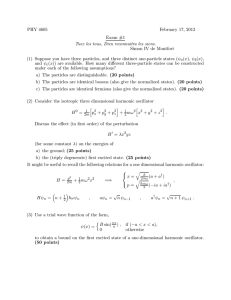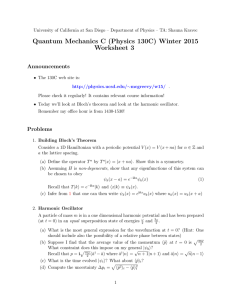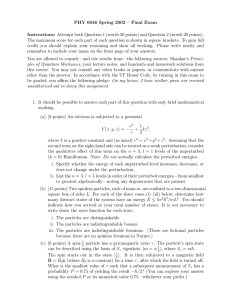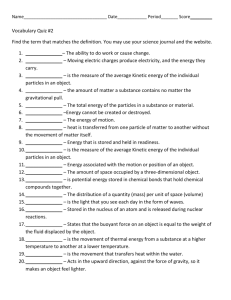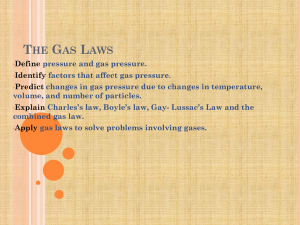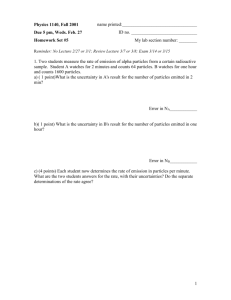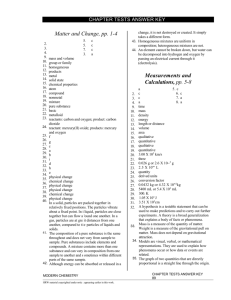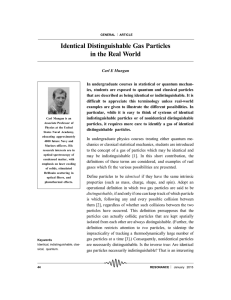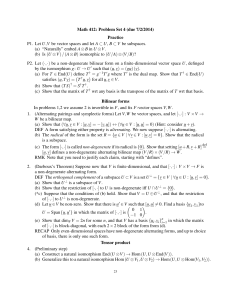Physics 4523, Statistical Physics, Spring 2016 March 11, 2016
advertisement
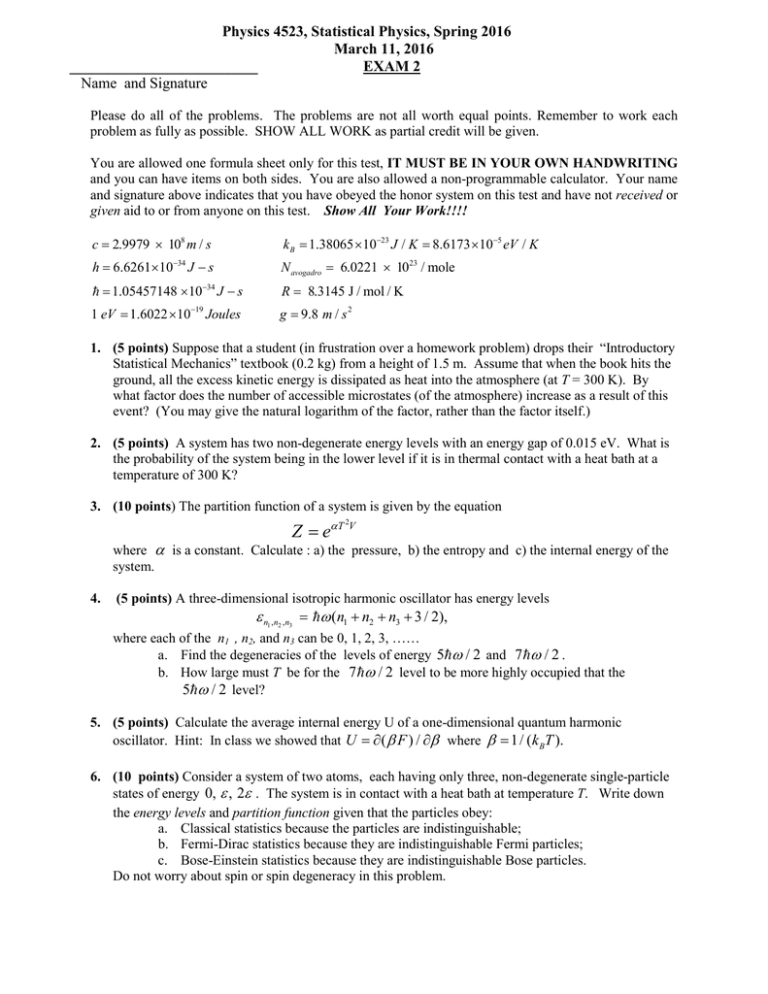
Physics 4523, Statistical Physics, Spring 2016 March 11, 2016 _________________________ EXAM 2 Name and Signature Please do all of the problems. The problems are not all worth equal points. Remember to work each problem as fully as possible. SHOW ALL WORK as partial credit will be given. You are allowed one formula sheet only for this test, IT MUST BE IN YOUR OWN HANDWRITING and you can have items on both sides. You are also allowed a non-programmable calculator. Your name and signature above indicates that you have obeyed the honor system on this test and have not received or given aid to or from anyone on this test. Show All Your Work!!!! 2.9979 × 108 m / s c= 1.38065 ×10−23 J / K = 8.6173 ×10−5 eV / K kB = h = 6.6261×10−34 J − s N avogadro = 6.0221 × 1023 / mole = 1.05457148 ×10−34 J − s R = −19 1 eV = 1.6022 ×10 Joules 8.3145 J / mol / K 9.8 m / s 2 g= 1. (5 points) Suppose that a student (in frustration over a homework problem) drops their “Introductory Statistical Mechanics” textbook (0.2 kg) from a height of 1.5 m. Assume that when the book hits the ground, all the excess kinetic energy is dissipated as heat into the atmosphere (at T = 300 K). By what factor does the number of accessible microstates (of the atmosphere) increase as a result of this event? (You may give the natural logarithm of the factor, rather than the factor itself.) 2. (5 points) A system has two non-degenerate energy levels with an energy gap of 0.015 eV. What is the probability of the system being in the lower level if it is in thermal contact with a heat bath at a temperature of 300 K? 3. (10 points) The partition function of a system is given by the equation Z = eαT V 2 where α is a constant. Calculate : a) the pressure, b) the entropy and c) the internal energy of the system. 4. (5 points) A three-dimensional isotropic harmonic oscillator has energy levels ε n ,n = ω (n1 + n2 + n3 + 3 / 2), ,n 1 2 3 where each of the n1 , n2, and n3 can be 0, 1, 2, 3, …… a. Find the degeneracies of the levels of energy 5ω / 2 and 7 ω / 2 . b. How large must T be for the 7 ω / 2 level to be more highly occupied that the 5ω / 2 level? 5. (5 points) Calculate the average internal energy U of a one-dimensional quantum harmonic oscillator. Hint: In class we showed that U = ∂ ( β F ) / ∂β where β = 1/ (k BT ). 6. (10 points) Consider a system of two atoms, each having only three, non-degenerate single-particle states of energy 0, ε , 2ε . The system is in contact with a heat bath at temperature T. Write down the energy levels and partition function given that the particles obey: a. Classical statistics because the particles are indistinguishable; b. Fermi-Dirac statistics because they are indistinguishable Fermi particles; c. Bose-Einstein statistics because they are indistinguishable Bose particles. Do not worry about spin or spin degeneracy in this problem.
